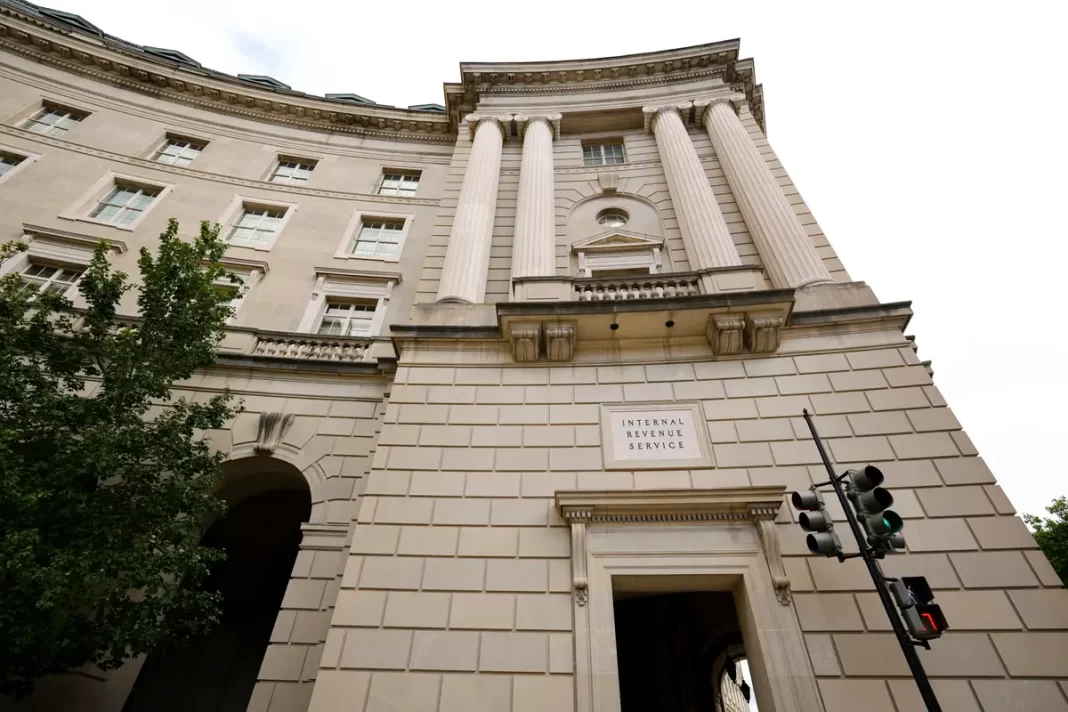By deciding to pay for the tax benefits granted the wealthy by cutting health insurance subsidies for the poor, Trump’s One, Big, Beautiful Bill, (“OBBB”) gives the Democrats their talking points to extend the government shutdown and for the 2026 elections. The Republican canned response, “It is a Democrat shutdown, is not selling.” The Republicans should convert present tax policy into a tax policy the nation would support. A simple tax form, easy compliance, and no policy gimmicks that hide the recipients and benefits of the deductions, credits, expenditures, deferrals, and exclusions. Such a tax policy would only raise the money needed to pay for the government. It would eliminate the money laundering ability of the federal government to use taxpayers’ money to help friends and family.
This described tax policy would benefit all Americans except the wealthy who would lose the ability to hide income in complexity. It would also force Congress to deal with complex issues like health care and health insurance in a direct manner. If Congress wants to give away money, it will have to do so directly. Like the wealthy, it could no longer hide the ball in complexity.
For years I have argued that the Federal Income Tax Code needs an updated version of the 1913 Form 1040 that was four pages long, including instructions, a few progressive rates and a couple of deductions. Such a tax code would bring fairness to the tax system and begin to restore trust in government.
For decades, America’s tax system has reflected the nation’s deepest tensions over wealth, fairness, and opportunity. While citizens agree that taxes are necessary to fund a functioning government, few believe the current system distributes that burden justly. The OBBB passed by Congress and signed into law on July 4, 2025, merely acerbates public distrust. A recent Quinnipiac University’s poll found 53% of voters opposed the OBBB; 27 percent supported it, and 20 percent did not offer an opinion. The Tax Policy Center found 60% of its benefits go to those with incomes over $217,000
The Colorado Fiscal Institute found:
[T]he OBBBA would give Coloradans who earn $863,400 or more a year an average tax cut of almost $70,000. For someone in the bottom 20% of earners, that means an average tax break of only $130—barely enough to matter, especially if [when] it comes at the cost of losing food assistance or access to health insurance through Medicaid.
The Congressional Committee on Taxation found the OBBB would raise $18 billion from Americans making under $30,000 a year starting in 2027.
The Two-Tier Tax System
The wealthy often argue that without preferential tax treatment, investment would decline, leading to fewer jobs, lower wages, and slower economic growth. To justify these tax breaks, affluent individuals claim that the benefits primarily help small businesses and family farms, to prevent them from being sold or shuttered in tough times or estate proceedings. Yet, in practice, many of these advantages flow to the top 10% of income earners. The privileges enjoyed by the wealthy come at a cost borne by ordinary taxpayers who subsidize them.
The U.S. tax system, as structured, enables the affluent to accumulate extraordinary wealth while wage earners shoulder a disproportionate burden when all taxes are considered. Workers are taxed on nearly every dollar they earn—from salaries to interest income to retirement benefits. They also face a regressive payroll tax that takes a larger percentage share from those who earn the least.
By contrast, the wealthy pay lower effective rates by classifying income as capital gains, carried interest, accelerated depreciation, or by exploiting the “stepped-up basis” loophole on inherited assets. These mechanisms allow vast fortunes to pass untaxed from one generation to the next. The result is a system that rewards wealth over work, allowing the rich to grow richer while millions of working Americans struggle simply to get by.
Complexity as a Privilege
There are hundreds of proposals to simplify and reform the tax code. Nearly everyone agrees that its complexity wastes time, drains money in preparation time, and invites manipulation by those who can afford to rearrange their financial affairs.
Those with the means—business owners, investors, hedge fund managers, and individuals with substantial estates—can exploit intricate rules to reduce or eliminate their tax liability. Complexity itself becomes a privilege, benefiting the wealthy who can hire lawyers, accountants, and consultants to shift income and shelter assets.
While every reform proposal creates winners and losers, there are ideas that could make the income tax simpler, fairer, more transparent, and raise the amounts needed to run government. Low-income individuals, for example, could be given a significant exemption—say, $21,500 for a family of two, (the poverty level), —to encourage work and ensure that the tax burden begins only after a meaningful level of earnings. A few clear tax brackets and minimal deductions would make compliance easier and enforcement stronger. Businesses should retain essential deductions—such as operating expenses and equipment depreciation—but not special loopholes or carve-outs.
In a simpler system, the wealthy would find it far more difficult to manipulate the code—but they would still benefit from lower tax rates. The goal is fairness: everyone in each income bracket should pay the same tax rate on all their income.
Since the current tax code defines income as “all income form whatever source derived,” there is no reason it should exclude trillions in income from sources that have the money to lobby Congress for special tax treatment.
Restoring Trust and Dignity
The current tax code serves as a constant reminder of the federal government’s perceived unfairness. Whether that unfairness is real or not, 56% of Americans believe the system is “complex, incomprehensible, and unfair.” Even more telling, 60% say corporations and the wealthy do not pay their fair share. These beliefs are reinforced by news reports of billionaires and large corporations paying little or nothing in taxes.
For Americans to believe their government treats citizens equitably, the nation must adopt a broad, straightforward tax system that raises a fair share of revenue from nearly everyone according to income. Such a system would replace today’s labyrinthine code with a transparent process for financing government operations—a tax code designed to fund the government, not reward political allies or powerful interests.
The reality is that the wealthy will always have the means to minimize taxes. Yet under a simplified system, they would at least pay the same rates as workers in their income bracket.
This debate is not merely about dollars—it is about dignity. It concerns how a nation values the people who sustain it: service workers, janitors, school bus drivers and countless others who keep businesses and communities functioning. The powerful should not reduce these citizens to second-class status simply because they lack the wealth to influence tax policy.
Reforming the tax code to eliminate favoritism toward the wealthy does not punish success—it affirms fairness. It is an act of respect for all who contribute to America’s prosperity.
William L. Kovacs, author of Devolution of Power: Rolling Back the Federal State to Preserve the Republic. It received five stars from Readers’ Favorite. His previous book, Reform the Kakistocracy, received the 2021 Independent Press Award for Political/Social Change. He served as senior vice president for the U.S. Chamber of Commerce and chief counsel to a congressional committee. He can be contacted at wlk@ReformTheKakistocracy.com
Edited with the assistance of ChatGPT (Open AI’s GPT – 5.)








